The Tech Bros Will Not Save You

“We live,” declared Bernie Sanders in a 2015 speech at Liberty University, “in the wealthiest country in the history of the world.” But, he added, not everyone was benefiting: “Almost all of that wealth and income is going to the top 1 percent.”
The senator from Vermont, just a few months into a surprisingly successful campaign for the Democratic nomination for president in the 2016 election, was hammering at his favorite issue ― one that would strike such a chord among a subset of the Democratic electorate that he mounted a serious challenge to the nomination of Hillary Clinton. Income inequality in the U.S. has been mounting, and that means nearly all but the wealthy have seen wages stagnate and savings dry up.
There are a couple ways to handle living on the wrong side of a rapidly widening wealth gap in today’s society. One ― the Sanders approach ― is to agitate for income redistribution, sturdier social safety nets and worker protections for all. The second option is to fantasize about somehow, however improbably, winding up on the other side. This has the advantage of being an uncomplicated solution: We can easily dream of being Cinderella, transported from peasant to royalty in the space of a day and elevated beyond the concerns of inequity.
After an election steeped in economic populism from the left and the right, it’s clear that America’s love affair with capitalism and Silicon Valley solutions is fraying; what’s less clear is whether a viable alternative exists, even in the fanciful world of fiction. In four provocative new novels, four women authors ― Alissa Nutting, Doree Shafrir, Courtney Maum and Catherine Lacey ― complicate our optimistic romance with the tech mogul and the uber-capitalist economy, and struggle to find a meaningful path forward for women and society at large.
****
America might not have royalty, but we do have the 21st-century version: billionaires, especially tech founders. They’re Cinderella and the prince all in one, vaulted to unimaginable wealth and power from modest backgrounds. The only thing standing between the modern man and one percent-dom could be an app that makes disappearing text messages, or a Keurig for cold-pressed juice.
For women, it’s a bit more complicated. The vast majority of tech founders and venture capitalists are men, and advancing in this male-dominated space can be a process fraught with sexual harassment and dismissive stereotyping. Women (and, to an even greater extent, black and Latino people) navigate a tech world that professes open-mindedness, meritocratic values and an idealistic desire to save the world ― and that too often operates with damaging self-absorption and self-regard. Women in this world, and consumers generally, rely partly on their hope that these earthly demigods will love us enough to use their nearly limitless power and resources to make us happy.
No wonder, as Anne-Helen Petersen wrote in 2015, hordes of readers and moviegoers were seduced by “the class fantasy” of Fifty Shades of Grey by E.L. James. Christian Grey’s seemingly boundless resources eliminated any form of want, offering us a vision of a life untroubled by mess or discomfort. He even, she points out, offers Anastasia a life free of the burden of choice. “Someone controlling [her] taste and offering her means, however circumscribed, is something like freedom,” wrote Petersen. “Freedom from thinking, from deciding, from choosing: all the things that characterize our exhausting and overstimulated existence within capitalism.” His company, which Grey founded and turned into a wildly successful corporation between the ages of 21 and 27, is a virtual shell. We have only the vaguest idea of what he actually does; the point is that he makes A LOT of money, money he can use to swaddle his lover in luxury.
Ceding all control to a wealthy, professedly benevolent force is both tempting (how much easier would life be if we didn’t have to struggle for every gain?) and terrifying (what if that force isn’t so benevolent?). And while Fifty Shades seduced millions of women by leaning into the temptation of it all, it didn’t answer the other question. The only fly in Anastasia’s ointment is that Christian, a BDSM enthusiast, wants to punish and bind her rather than marry her; the resolution is that she’s allowed to keep his wealth and good looks because she ends up enjoying their sexual escapades and he ends up wanting to commit.
That’s the fantasy of the capitalist fairy tale: Everything that can go wrong, will instead go incredibly right. Men win wealth with their wit and drive; women are gifted it in recognition of their beauty and lovability. Private helicopters for everyone! All well and good for a bit of escapism, but what if things went the other, far more likely, way?
****
In her viciously funny new novel Made for Love, Alissa Nutting rewrites the Fifty Shades romance without the happy ending ― and it makes the capitalist fairy tale look more like a dystopia.
Nutting’s heroine, Hazel, has lost everything. After about 10 years of marriage, she’s left her husband, the powerful tech founder Byron Gogol (whose company strongly resembles Google, not only in name but in scope and ubiquity). She entered the partnership with nothing, and she’s left with nothing, including the Gogol gadgets and perks that came with the marriage. Worse, since she was valuable to his public image, she knows her husband won’t let her go easily; she’s essentially in hiding, and every piece of tech could betray her whereabouts to him. Out of options, she shows up unannounced at her father’s home: a trailer in a senior citizens’ community in Florida, where her dad is currently holed up with his expensive new sex doll.
In case it’s unclear that Made for Love was meant to satirize Fifty Shades of Grey, Nutting goes so far as to reproduce, in nearly identical beats, the foundational meet-cute of James’s series. Hazel’s ambitious friend scored an interview with the 27-year-old mogul, who was at their college to deliver a commencement speech, but she caught a nasty flu and had to send Hazel in her place. During the interview, Gogol seemed surprisingly intrigued by the awkward, dowdily dressed young woman in front of him. “This super-rich person really likes me,” she thought, flattered. He swept her off her feet in a blur of free clothes, silent uniformed staff and focused attention.
When Byron proposes, a battalion of lawyers bring Hazel a hefty prenup to sign, but, broke and aimless, she doesn’t flinch: “Hazel remembered thinking this exact thought: There is no way I can lose.” She has even fewer reservations than Anastasia, who hesitates before, essentially, coming to the same conclusion: She has nothing to lose that’s worth losing, and so much to gain.
So far, so Fifty Shades. But Nutting foresees a sinister side to this blinding desire for a life of ease. As she makes clear, Hazel does have things to lose ― her freedom, her access to affection and analog pleasures, her sense of self.
For consumers seduced by apps and gadgets that make every facet of our lives a little easier ― or, at least, a little newer and shinier ― the often-ignored risk is similar. We believe that Google, Facebook and Uber have a pure desire to make the world better, because the alternative is facing a more complicated, unsettling reality. We’re persuaded to give up our privacy to companies that then convert our personal data into profit. We see no downside to calling up an Uber instead of taking a pricier cab or less convenient bus, not realizing that those better regulated transit options might not stick around forever in our absence.
Like many abusive partners who initially bowl over their targets with charm, flattery and gifts, it turns out that Byron chose a vulnerable, poor student with little family precisely because she had little to lose. He wanted someone easily controlled ― and, in a move that ties together the personal and the political, he wanted to use that control to maximize his profits. Gogol plans to roll out a brain chip technology, and Hazel’s husband was using her as a guinea pig. Though he insists he would never use the information maliciously, the reality is that the chip takes away her ability to keep anything private, or to truly leave him. She, and any other future users, are utterly at the mercy of his good intentions. This technology could have very dangerous uses ― and unfortunately it seems Byron has every plan of putting it to those uses.
****
The lover-as-test-subject strategy is still more explicit in Catherine Lacey’s achingly lost second novel, The Answers. The protagonist, Mary, is a lonely 20-something woman in New York City. She’s estranged from her family, and spent her first few post-collegiate years trying to escape herself by vagabonding around the world. When she falls ill in some mysterious, female way ― something that, like fibromyalgia and other complaints suffered mostly by women, has amorphous symptoms and is never taken seriously by doctors ― she tries an alternative treatment. To pay for the staggeringly expensive therapy, she answers a vague ad and winds up being cast in a research project funded by mega-famous movie star Kurt Sky. The experiment promises to manufacture a perfect relationship by casting different women to perform different roles: intellectual stimulation, conflict, sex, quiet coexistence. Mary will be his Emotional Girlfriend; in exchange for a hefty salary, she’ll meet him at appointed times and listen supportively as he shares his hopes, fears and secrets.
The experimenters are the real puppet masters, we slowly realize; though it’s Kurt’s money, the scientists who have developed the scheme have their own sinister plans to build and monetize a technology based on the research. It’s unclear whether the consumers will actually benefit; though Kurt and his roster of hired girlfriends all think they’re benefiting from the research process, either emotionally or financially, the real result is that they’re all damaged. The lonely actor/director finds himself wooed by Mary’s performance of understanding, but when he realizes her supportive silence and quiet affirmations don’t indicate a true reciprocation of his attachment, he has to get rid of her. It’s too painful for Kurt to know that the authentic relationship he thought he’d found was just a woman doing her job ― even though that’s exactly what he’d asked for.
Kurt seems like an entitled sap, but he’s only human. When a more frictionless path to pleasure is offered, it’s natural to be tempted, and our unbridled capitalist economy thrives on incremental improvements to consumers’ convenience and comfort. But there are costs. Some pleasures, like successful relationships, are born of that irritating friction. As Kurt learns, we can’t take out the flaws and the hiccups without sapping the result of its authentic sweetness.
****
Sloane Jacobsen, the heroine of Courtney Maum’s sophomore novel Touch, suffers a still more acute crisis of faith in technology’s comforting power. A famous trend forecaster who has just been hired to consult full-time at Mammoth, a massive tech conglomerate much like Google or Apple, Sloane has made her reputation by predicting tech innovations such as the swipe (you know, like Tinder). Her long-time partner, French intellectual Roman Bellard, has coasted off her insights to come up with a buzzy new idea: neo-sensualism, a post-touch and post-sexual philosophy that promises greater satisfaction from virtual sex.
While her new employer, Mammoth CEO Dax Stevens, is a fan of Roman’s work, Sloane has begun to question it. She senses a shift in the other direction, a reaction away from overly slick digital life toward animal comforts. This partly has to do with her own needs. She’s begun to crave the domestic warmth she left behind to be one-half of a power couple so shiny and well-armored that the two have barely even touched each other in years.
At Mammoth, Sloane begins to lead brainstorming workshops with the developing teams, looking to pitch products geared toward child-free adults like herself and Roman. But through these conversations with confused young professionals, she realizes that the wellspring of loneliness among modern singles might be more acute than she guessed. Tired of bashing herself against the smooth, unyielding wall of Daxter’s (and Roman’s) technological future fantasy, Sloane finds herself considering, instead, embracing another fantasy: sex, romance, pregnancy. “It doesn’t make me old-fashioned to want affection!” she snaps at her partner during a dinner. “It doesn’t make me old-fashioned to want children!” Rather than be swept into the tide of the capitalistic tech fantasy, she walks away, gets a non-tech-focused job, and starts a family.
Sloane’s is a fairly neat solution to a tech world takeover. In fact, she happily takes on perhaps the most eerie bit of tech innovation in the book ― her A.I. personal assistant and smartcar, named, oddly enough, Anastasia ― even after she dramatically abandons the digital sphere. She finds the simulated companionship comforting. Anastasia knows how she likes her coffee and makes it for her; Anastasia asks politely about her day and makes the appropriate, soothing responses. That the virtual assistant is actually a creepy repository of an immense amount of information about her ― and specifically designed to overcome any qualms by artificially smoothing away small discomforts ― doesn’t faze Sloane in the end. When she needs to hire an assistant and her old employee isn’t available, the job doesn’t go to another person, but to Anastasia.
“She was an admission that there was a lot of good about technology,” Maum writes. “She was a modern compromise.” We all long to see good in Silicon Valley’s products, even those of us who sometimes feel uneasy about how much tech companies have infiltrated our private lives. But which part is the good part? In Maum’s view, it’s technology that makes us feel like we’re connecting with people, the old-fashioned way ― even if that feeling is a lie.
****
The tech satire Startup, Buzzfeed writer Doree Shafrir’s first foray into fiction, takes a still less fatalistic, though more disdainful, view of tech itself. The central antagonist, 28-year-old Mack McAllister, created a wellness app called TakeOff that quickly, well, took off, and he’s about to close on another round of venture funding on the strength of a new feature that will predict a user’s wellness needs.
The creepy omniscience of this app ― for which Mack promises investors won’t store user data to fuel an algorithm that only works if Takeoff does store user data ― seems like a pretty major problem, but that’s not the primary concern of Startup. If anything, the startup bros Shafrir lampoons are devastatingly ineffective, myopically focused on minor lifestyle apps, like an app for crowdsharing strollers, rather than meaningful steps forward for science. That’s when they’re not tagging each other on Instagram, guzzling green juices, making appearances at sober raves and sniffing out possible hook-ups. The men of Startup are too distracted by their own dicks to take over the world. Mack might be greedy, but he’s hardly clever or focused enough to build a company that might threaten consumers’ privacy and wellbeing.
The real threat in Startup is the outsized status and entitlement men gain through succeeding in the capitalist arena. Where the HBO show “Silicon Valley” zings Silicon Valley for the self-serving high-mindedness of its ethos, Startup lacerates the hypocrisy of posing as idealistic do-gooders while fostering workplaces that serve as playgrounds for white bros and battlegrounds for women, people of color and other less powerful constituencies. Mack, in distinct contrast to Nutting’s bionically efficient Byron, uses his tech work as a dating pool rather than vice versa. He’s been having a fling with TakeOff’s beautiful blonde Engagement and Marketing Hero, Isabel, but when she cools on the romance, he can’t help but act on his wounded feelings, getting on her case in meetings and eventually restructuring her role. Mack doesn’t see himself as a villain, but he’s recklessly using his power to harm an employee ― and with rising young tech journalist Katya on the case, the truth can’t be hidden forever.
The recent spate of such scandals at startup giants and venture capital funds alike has revealed, argued Maya Kosoff in Vanity Fair recently, that “Silicon Valley is just as venal and sexist as Wall Street ever was,” though, she added, “one difference between Wall Street and Silicon Valley is that the former at least acknowledges that they often behave like jerks.” The refusal to acknowledge this is Silicon Valley’s secret weapon: As a society, we’re inviting the enemy into our homes, if not our beds, not realizing they’re the enemy at all.
Related...
24 Books That Will Help You Understand America
In A World That’s Stranger Than Fiction, Are Americans Still Reading Books?
'Handbook For Mortals' Author Accuses YA Community Of Keeping Out New Voices
****
Our unwitting complicity in our own exploitation doesn’t excuse those who take advantage, but it does present immense obstacles to undoing the damage. While all four authors lay bare how the Silicon Valley iteration of the capitalist fantasy can fail, consume or destroy us ― and the particular vulnerability of women to it ― each writer struggles to offer a convincing pathway to liberation. Their female protagonists are victimized by tech titans, and they discover that the answer isn’t as simple as submitting in exchange for material gain. But is there anywhere else to go?
In Touch, Maum offers a Pinterest-worthy, emotionally pleasing conclusion, in which the heroine transitions smoothly into a morally uncompromised but still high-status, high-earning career while enjoying a sexual renaissance and a fulfilling family life. There’s some comfort, too, in the trend she forecasts: Young people around the world are growing exhausted with the saturation of digital entertainment and going, metaphorically at least, to the woods because they wish to live deliberately. But ― ironically, for a book that urges us to embrace the messiness of reality ― Touch delivers an ending that resembles the shabby-chic Anthropologie version of Fifty Shades of Grey’s gleaming Restoration Hardware aesthetic. Sloane only gives up things that she never wanted to begin with; she winds up with the best of everything.
Nutting, for her part, isn’t convinced that having the best of everything is anything more than a logical fallacy. The unremitting perfection of a luxurious lifestyle, stripped of rough edges by an unholy marriage of cutting-edge technology and money, is itself what saps their joy. At first dazzled by Byron’s ergonomically optimized home, the Hub, Hazel learns almost immediately that no experiences seem to carry weight there: “[E]ven on that first visit, ‘living’ felt like a generous term for what happened inside The Hub.” When her sex life with her husband fades, he suggests in a businesslike manner that she use a Gogol device to masturbate to orgasm daily. “She’d tried out the machines, and they were effective,” writes Nutting. “But too effective? They worked in seconds and made climax feel like a reflex.”
Even after Hazel leaves Byron, his megalomaniacal quest to reclaim his wife, and to use his technology to exploit millions of consumers, remains terrifyingly in motion. Nutting’s solution is perhaps the weakest and yet most superficially satisfying twist in the book: a woman CEO. After a quiet divorce, Byron remarries his long-time righthand woman, Fiffany, who has been sniffing after him for years. But then, Byron dies in a freak accident ― engineered, Hazel is convinced, by his ambitious new wife ― and Fiffany quickly takes over the company. “[I]n killing him, she’d probably saved the world a little,” writes Nutting. “One of her new VPs was already discussing what speculative changes the company might undergo with her leadership ... She’d likely be bowing out of several of Gogol’s weapons’ contracts and wanted to increase the company’s humanitarian initiatives.”
“Hail the new CEO,” Hazel applauds, as she watches the news on TV.
How satisfying, that the perpetually downtrodden woman might get enough power to actually fix the worst excesses of capitalism. It’s a neat button on the clear parallel, from Fifty Shades to Made for Love, between the patriarchy and the capitalist system ― two systems that purport to offer comfort and happiness to the vulnerable, but that were actually created to benefit the powerful. It takes a woman, Nutting suggests, to slam on the brakes of a mechanism designed by and for men.
It’s such a satisfying fantasy that Made for Love isn’t the only one to indulge in it. Startup offers a similar savior arc for the women of the tech scene ― three victims of male manipulation (Isabel, her employee Sabrina, and journalist Katya) ultimately work together to take down Mack. They don’t need to suffer the indignities of being subject to male egos anymore; they have female solidarity. The book closes on the image of the three women sharing a bottle of wine in Isabel’s expensive Brooklyn apartment, contemplating their futures.
Giving the levers of power to women feels like a win, or at least a cathartic way to end a book that catalogs the misogyny and power-hungriness of Silicon Valley. The problem is, putting a woman in charge doesn’t fix anything. We know that because we’ve seen it. In the past few years, the female executive or #girlboss arose as an almost instantly discredited feminist brand. There was Sheryl Sandberg, who worked her way to the top of the industry through intelligence, talent and a whole lot of luck and privilege ― the latter of which became abundantly clear with the publication of her blinkered advice guide for ambitious women, Lean In. Entrepreneur Miki Agrawal launched Thinx, a period underwear startup, with a pro-woman, empowering message. In March, she had to step down as CEO after allegations that she’d exploited employees and fostered a culture of sexual harassment in her office. Bootstrapping millionaire Sophia Amoruso, founder of the fashion startup Nasty Gal (which filed for bankruptcy this year), suffered a major blow to her reputation when former employees alleged that she’d fired women who became pregnant and had other health issues.
It’s seductive to think that letting women run our tech conglomerates would make them instantly kinder, gentler and less geared toward rapaciousness. But women aren’t inherently better people than men, they’re just less likely to have the power to behave badly with impunity, and less likely to have been encouraged to assert their predatory instincts. Often the women who make it that far turn out to be just as unscrupulous as their male counterparts. Often having that kind of power, and the temptation of that much money, turns out to be corrupting. Many women have their own privileges and biases, even internalized sexism.
Suffice it to say, depending on women to be virtuous enough to save the world from itself won’t really get us anywhere. Maybe nothing will. In The Answers, Lacey’s Mary doesn’t seem to feel much optimism. When she leaves, she first relies on technology to ease her lonely life ― ordering in everything she needs from her phone and browsing the Internet for hours ― but then tries to reclaim herself by shutting the phone off for weeks. Another woman, Kurt’s Anger Girlfriend, seeks Mary out, hoping they can join forces to seek revenge on Kurt, but Mary doesn’t see the point. She can’t find relief in technological pacifiers, or love, or female solidarity. Nor does she see another solution to the issue she’s diagnosed: a messy, ever-changing world populated by people who long for impossible neatness and stability. Little wonder we retreat into fantasies about winning the lottery or marrying chiseled billionaires. In such a hopelessly muddled world, it makes more sense to yearn for the simple comforts of love and money than to chase after elusive fixes to our true, deeper angst.
Lacey’s heroine, in the end, most perfectly embodies our confused society, frustrated with the state of things yet at a loss for solutions. And as much as we’d like to think so, fixing our problems won’t be as simple as getting a woman put in charge of Uber.
Made for Love, by Alissa Nutting
Ecco, $26.99
Published July 4, 2017
Touch, by Courtney Maum
G.P. Putnam’s Sons, $26.00
Published May 30, 2017
Startup, by Doree Shafrir
Little, Brown and Company, $26.00
Published April 25, 2017
The Answers, by Catherine Lacey
Farrar, Straus and Giroux, $26.00
Published June 6, 2017
Also on HuffPost
Love HuffPost? Become a founding member of HuffPost Plus today.
"Sex Object" by Jessica Valenti
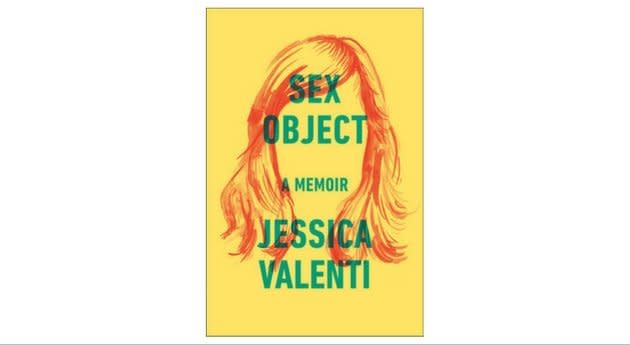
"Known and Strange Things" by Teju Cole
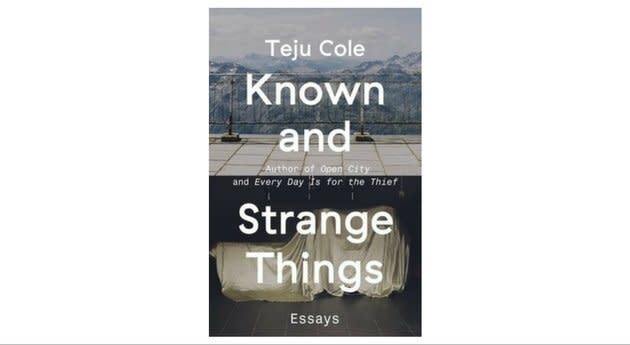
"The Art of Waiting" by Belle Boggs
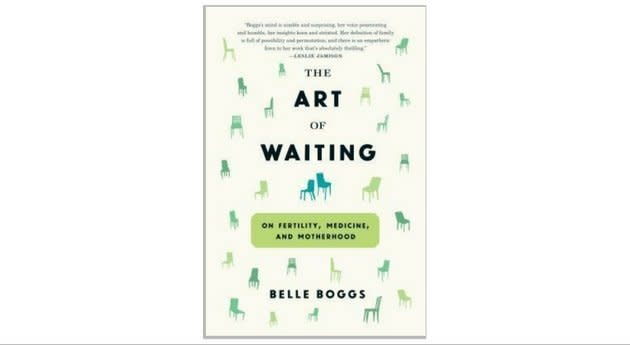
Read our interview with Belle Boggs.
"The Selfishness of Others" by Kristin Dombek
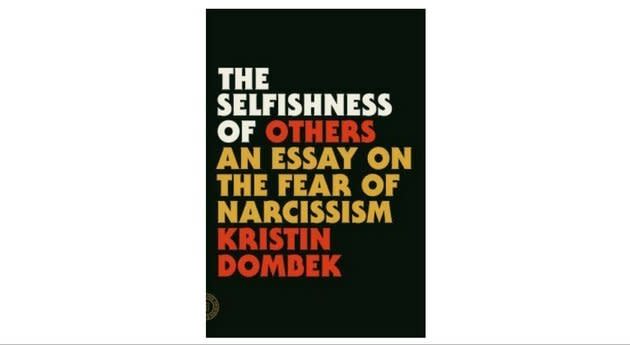
"Invisible Man, Got the Whole World Watching," by Mychal Denzel Smith
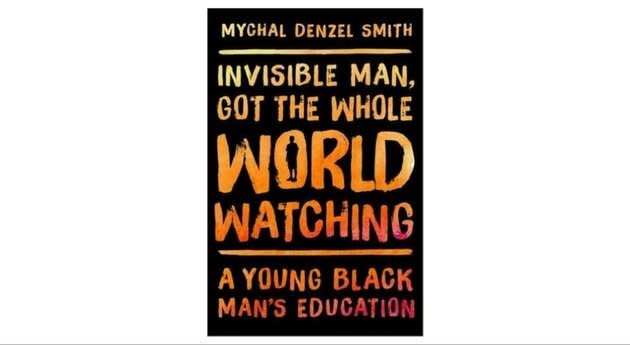
"Future Sex" by Emily Witt
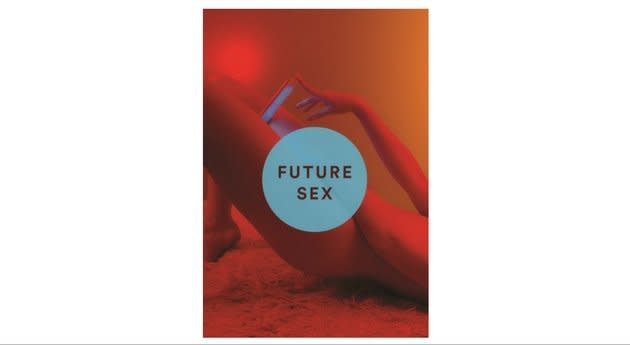
Read our review of Future Sex.
"Muslim Girl" by Amani Al-Khatahtbeh

"Ghostland" by Colin Dickey
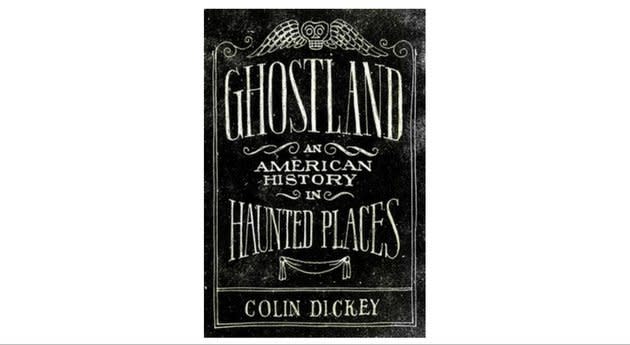
Read our review of Ghostland.
"How to Be a Person in the World" by Heather Havrilesky
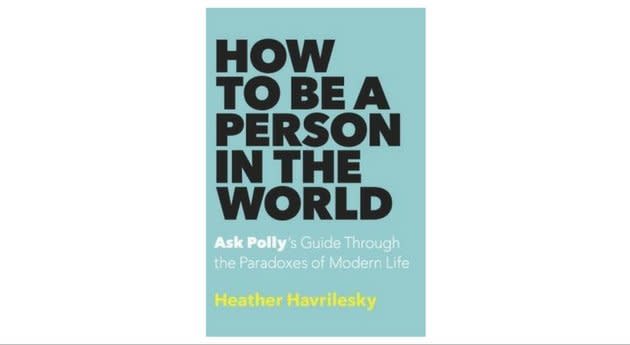
Read our interview with Heather Havrilesky.
"The Fire This Time" by Jesmyn Ward

"Every Song Ever," Ben Ratliff
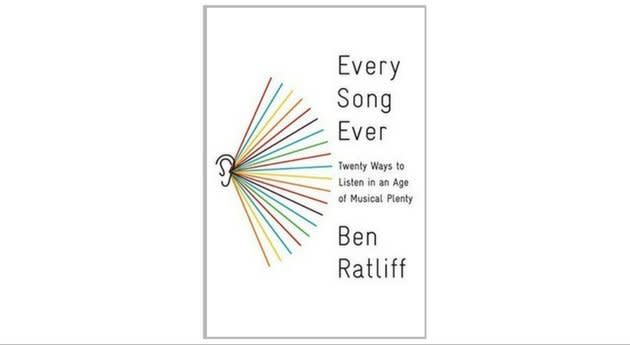
"Rolling Blackouts" by Sarah Glidden
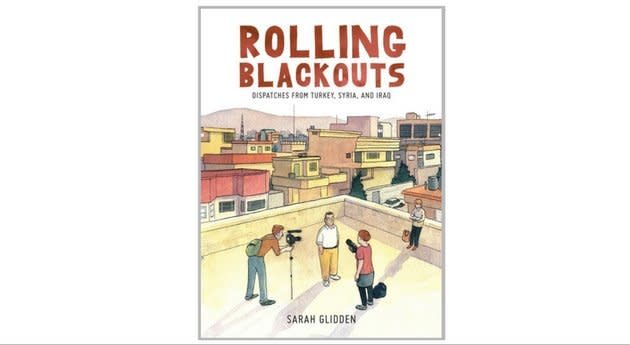
Read our interview with Sarah Glidden.
"Violation" by Sallie Tisdale
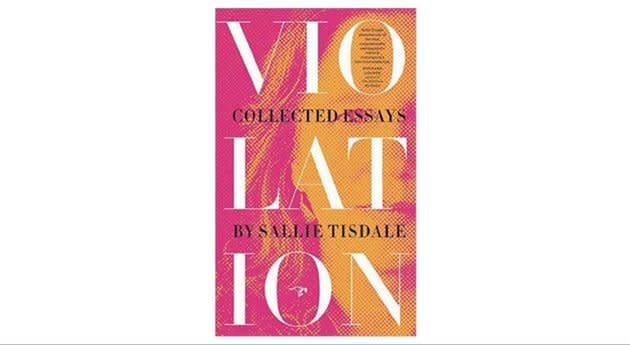
"You Belong to the Universe" by Jonathon Keats
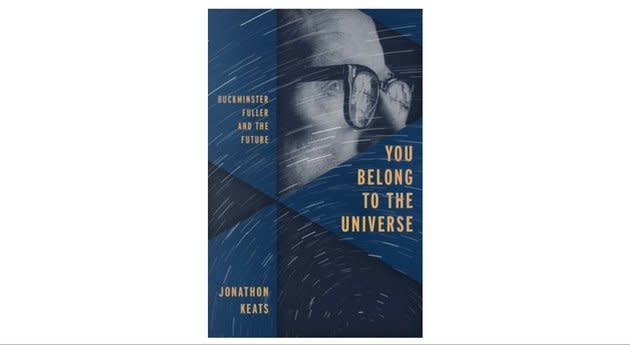
"Girls & Sex" by Peggy Orenstein
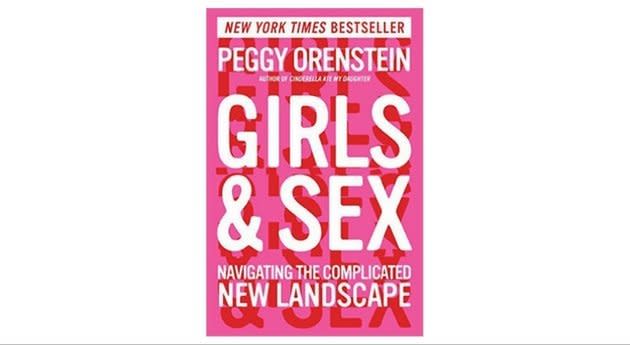
Read our review of Girls & Sex.
"Where Am I Now?" by Mara Wilson

"Agnes Martin and Me" by Donald Woodman
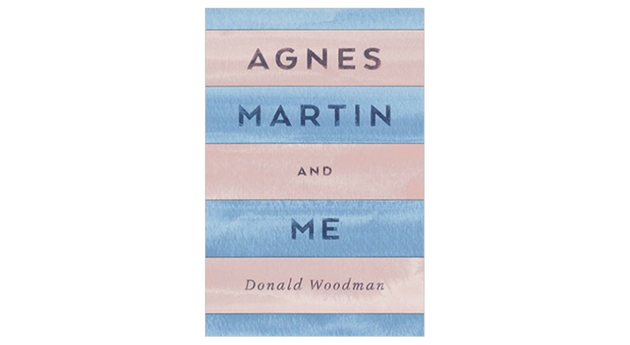
"Adnan's Story" by Rabia Chaudry
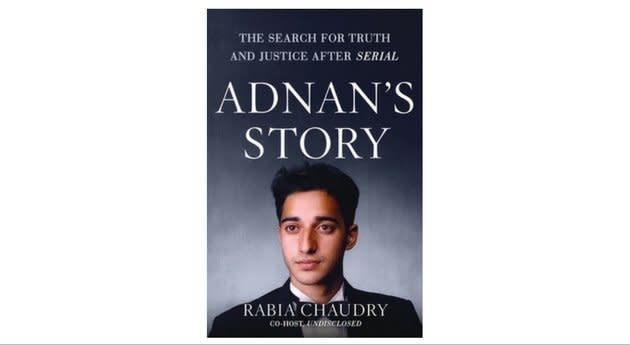
"Land of Enchantment" by Leigh Stein
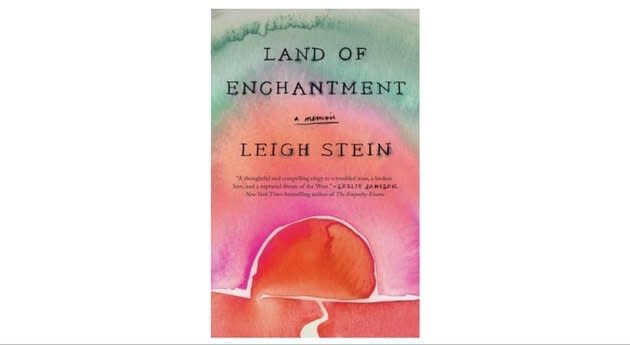
Read our interview with Leigh Stein.
This article originally appeared on HuffPost.

